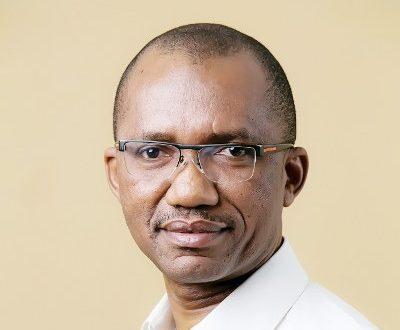The Senior Vice Chairman/Editor-in-Chief of the LEADERSHIP, Azu Ishiekwene, has advised educational institutions to adapt their curricula to prepare future journalists with the skills necessary to thrive in an ever-evolving media landscape characterised by rapid technological change and social dynamics.
He also said that media outlets must explore innovative business models that align with contemporary consumption patterns while ensuring sustainable revenue streams.
Ishiekwene said this while delivering a keynote address titled: “Resilience and Innovation: Thriving in the 21st Century Media Landscape” at the 6th Campus Journalism Awards in Abuja on Saturday.
The LEADERSHIP Editor-in-Chief noted that training for resilience should include crisis preparedness strategies that equip media professionals to handle unexpected challenges effectively.
He said building a resilient media ecosystem required collaboration among various stakeholders, including tech companies, educational institutions, and civil society organisations.
According to him, social media has emerged as a powerful fifth estate, reshaping public discourse and requiring traditional media to rethink their engagement strategies with audiences.
“Media organisations must cultivate resilience by embracing change and fostering a culture of innovation. This will allow them to respond effectively to crises and disruptions, some of which are fundamental to the industry and practitioners.
“The rise of AI technologies, such as predictive models, transforms how content is generated and shared, presenting challenges and opportunities for journalists to enhance their work.
“As misinformation proliferates, media organisations must develop strategies to combat false narratives and empower audiences to evaluate the information they consume critically.
“Building critical media literacy skills is essential for navigating the complex media landscape. It helps individuals discern credible sources from unreliable ones.
“As media organisations adopt new technologies, ethical considerations must guide their implementation to ensure that innovations serve the public good rather than exacerbate existing inequalities.
“The integration of data journalism can provide deeper insights into societal issues, enabling more informed public discourse and enhancing accountability. The increasing importance of visual storytelling requires media professionals to develop visual communication skills to engage audiences effectively,” he added.
Ishiekwene said some critical issues were presently affecting the media landscape, including ownership patterns which hav implications for censorship as well as self-censorship, and regulation where monitors/regulators dictate specific rules by which traditional media organisations must abide, whereas online platforms are relatively free of such restrictions.
The media icon said fundamentally, the journalist of today must be multidimensional and multidisciplinary in scope, with significant competence across different platforms, be able to engage by providing agency, have moral legitimacy and a data set familiarity that enables him or her to interpret numbers in wide-ranging formats.
On his part, the Director General of the National Orientation Agency (NOA), Lanre Issa-Onilu, said in a country as diverse and complex as Nigeria, the role of journalism in promoting national unity and progress cannot be overemphasised.
Represented by Paul Odenyi, the NOA Boss said journalism was not just about reporting the news but a powerful tool for shaping the narrative of a nation, influencing public opinion, and fostering positive change
“As young journalists, you have the unique opportunity to be both the voice and the conscience of the nation. In a country as diverse as Nigeria, with its various ethnicities, cultures, and religious beliefs, journalism becomes the glue that holds us together.
“It is through your pens, your keyboards, and your voices that we can tell the story of our shared experiences and struggles, celebrate our triumphs, and address our challenges,” he added.
While declaring the event open, a former director, Army public relations, Brigadier General Sani Usman (rtd), who commended the organisers, tasked young journalists on taking the path of investigative reporting.
The retired general, who was chairman of the event, however, urged campus journalists and practitioners of the profession to always adhere strictly to the ethics and standards of the industry to ensure national security is not breached.
Senior Vice Chairman/Editor-in-Chief of the Leadership Media Group was presented with the honorary Patron award, while Sherefedeen Ahmad of the Usman Dan Fodio University emerged the overall winner of the 2024 Campus Journalism Awards.

